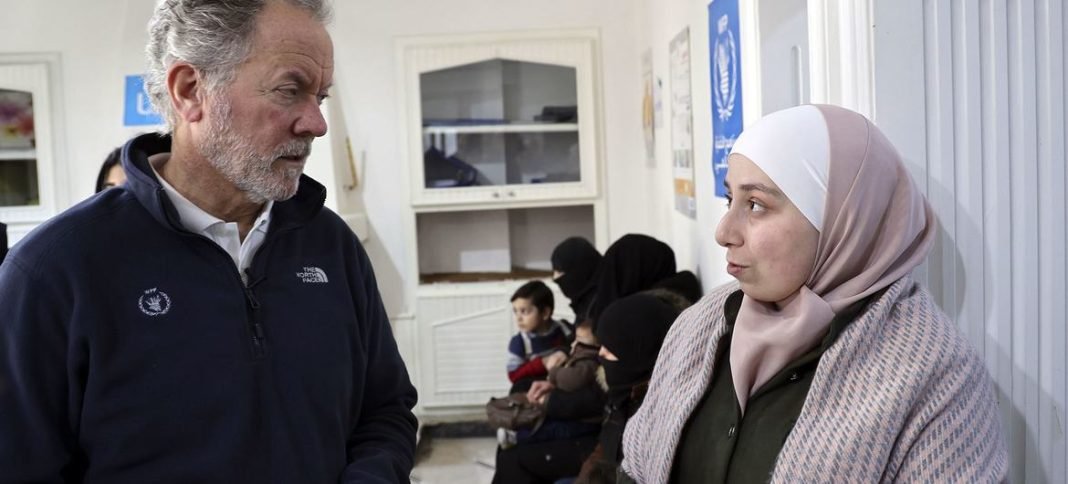Damascus, 28 January 2023 (TDI): The head of the UN World Food Programme (WFP), David Beasley, called on the world to invest in people and communities in Syria. The appeal is to help ease the highest hunger levels in 12 years.
Syria: “Families are struggling more than ever. They have no food, no heat and no electricity.”
— @WFPChief calls for more humanitarian funding for Syria, as country faces highest levels of hunger since war started 12 years ago. https://t.co/sdQVr2GiEL
— United Nations (@UN) January 27, 2023
Web of Crisis
The head said that this was an emergency humanitarian crisis that needed attention. Things are getting worse day by day. The 12 years of brutal conflict left dire consequences.
That includes a crippled economy, higher inflation, devaluation of the currency, and spiraling food prices. More than 12 million people do not know where their next meal comes from.

Furthermore, 2.9 million people are at risk of sliding into hunger. That means 70 percent of the population may soon be unable to put food on the table for their families.
New Wave of Migration
There is an imminent chance of a new wave of migration in Europe. Suppose the crisis would not resolve timely. Then this crisis would turn into a catastrophe. The world community needs to work with the Syrian refugees, UN Head said.
The WFP Chief is on a fifth trip to Syria. He visited Al Nashabiyah subdistrict in Duma in East Ghouta, Rural Damascus. The area is known as the breadbasket of Damascus.
The war destroyed all the fruit orchards in this area that were bombarded between 2013 and 2018. This also led to a large displacement of people.
WFP Workings
The agency started to help farmers and the communities in the area by fixing some of the irrigation canals that were destroyed during the conflict. Also, to help them grow wheat and other food to feed themselves once more.
“WFP is working to irrigate nearly 28,000 hectares of land across the country, enough to feed 620,000 people here. That means less hunger, more economic opportunity, and a stronger local economy”, said Beasley.

“The $14 million investment will save $50 million per year in humanitarian assistance and create nearly 90,000 jobs,” he added. “In a nation where around 85 percent of WFP’s spend goes on humanitarian food assistance, that’s a huge saving. But we need to scale up these investments to boost the resilience of other food-insecure communities across Syria.”
Increase in Food Prices
Food prices increased in Syria nearly twelve-fold over the last three years. Syria is now the country with the sixth highest number of food-insecure people in the world. About 2.5 million people are severely food insecure, and their lives are at risk without food assistance.
Malnutrition Rate Soaring

Child and maternal malnutrition are increasing, the agency warned. WFP is now providing monthly assistance for nearly seven million people across Syria. This includes food ration distributions, prevention and treatment of acute malnutrition, school meals, and cash-based transfers. Also, support for livelihoods, resilience, and social safety nets.
Iqra is a research scholar. She writes on various platforms. She is the author of two books. Her research interest includes politics, International relations, diplomacy, peace, and conflict studies, public administration, sociology and history.








